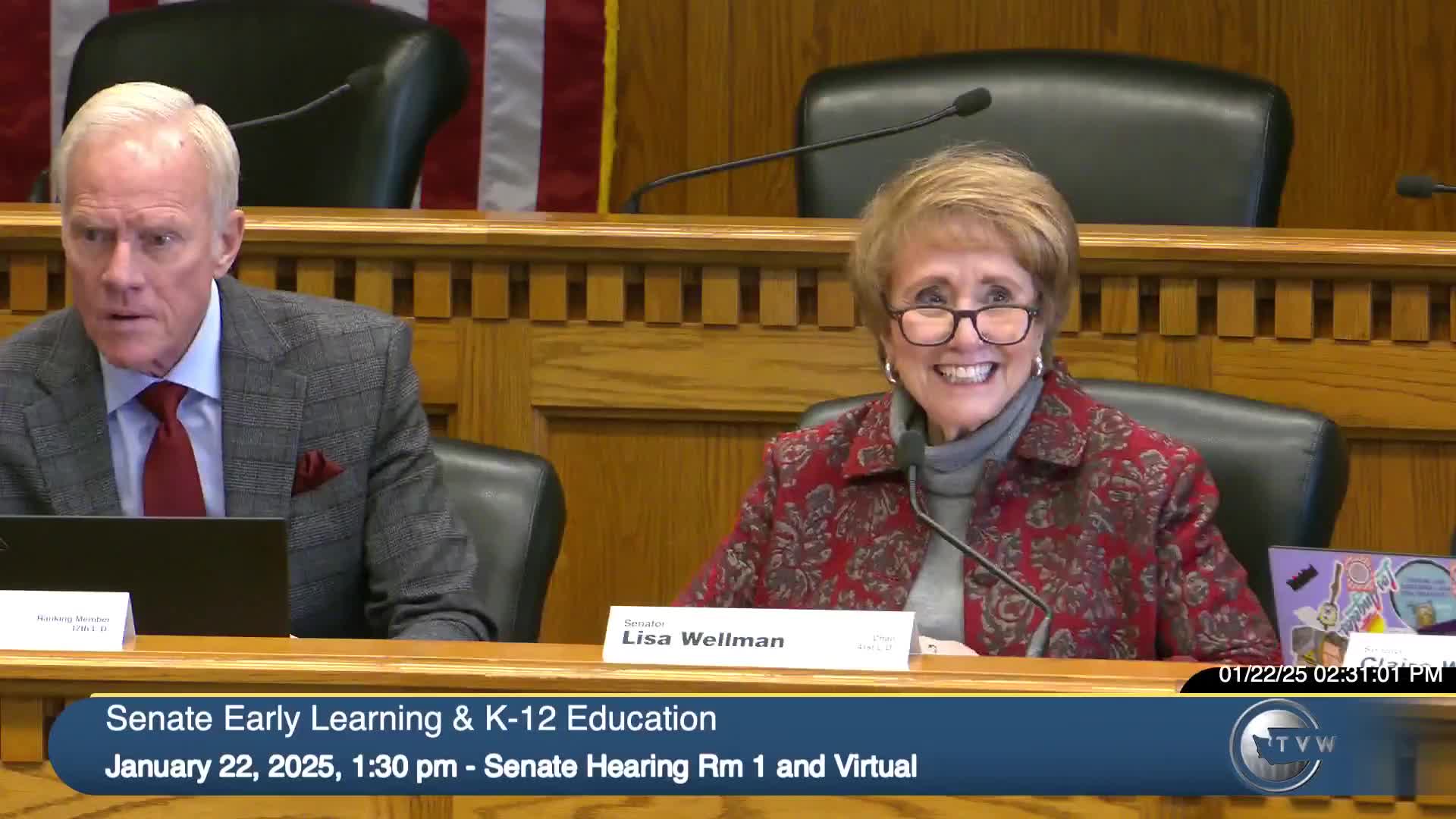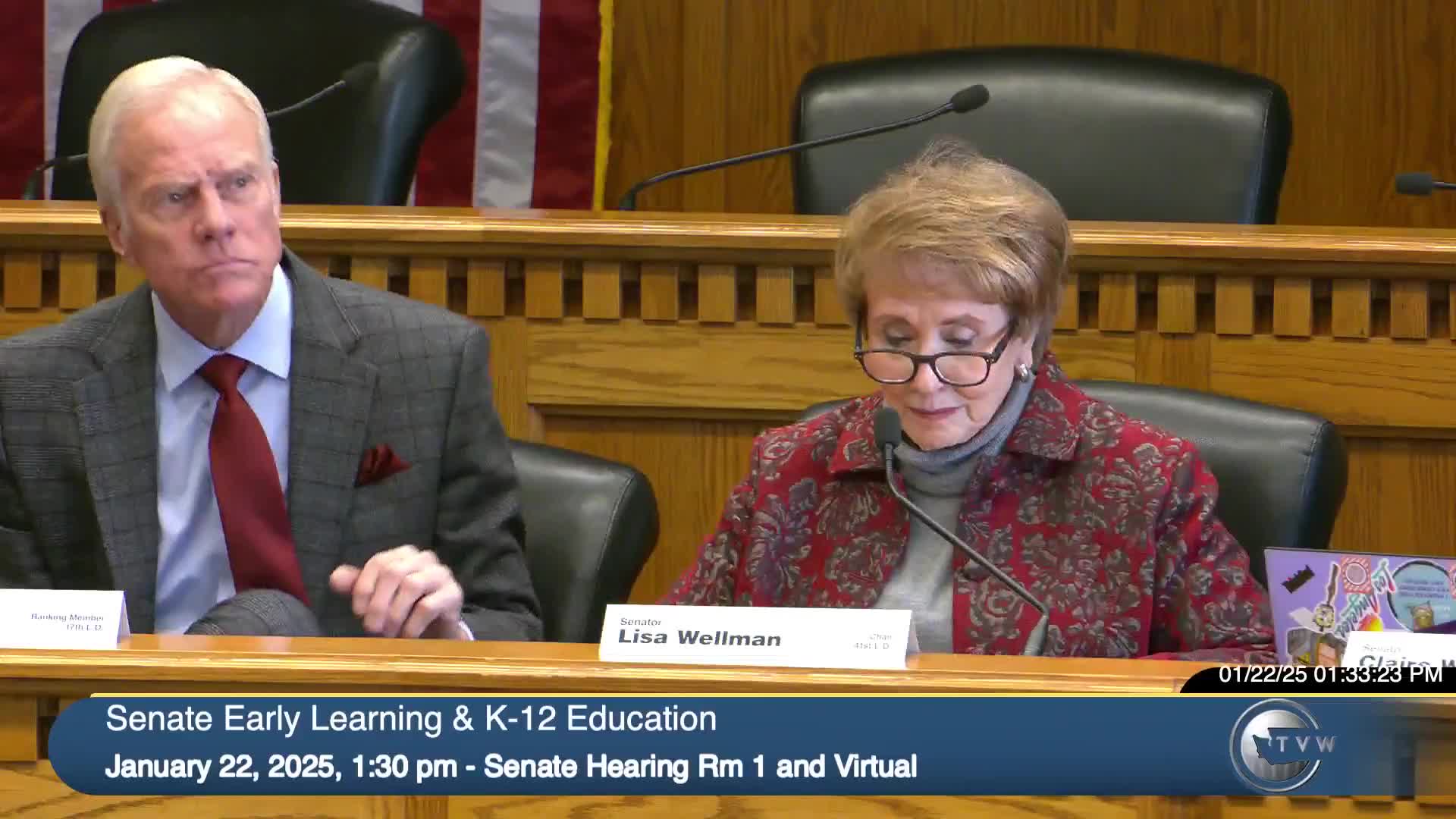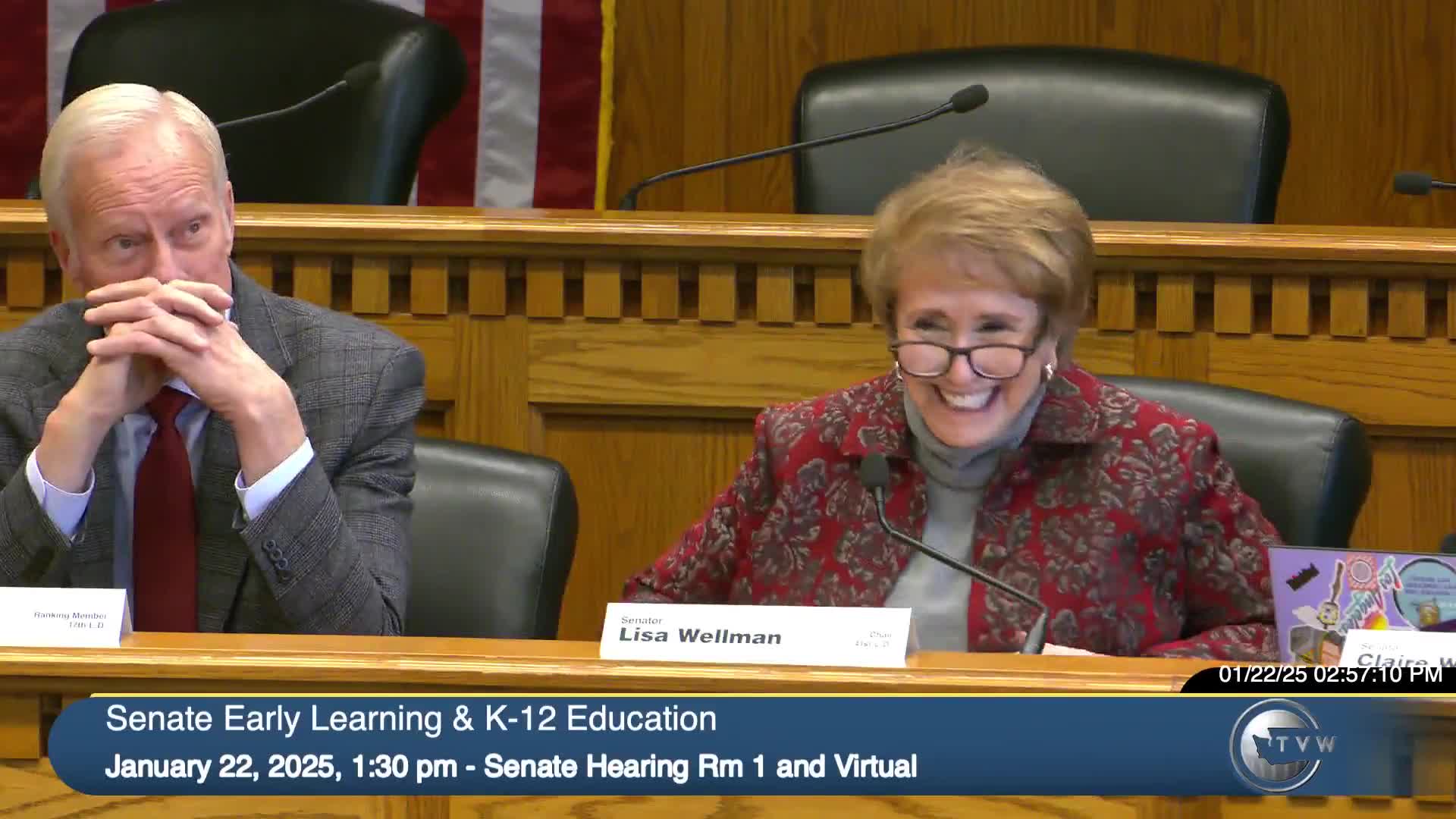Article not found
This article is no longer available. But don't worry—we've gathered other articles that discuss the same topic.

Committee weighs overhaul of student transportation funding; bill would task OSPI to rewrite STARS and add $400 for homeless students

Lawmakers hear rival bills to boost special‑education funding; advocates urge ending 16% cap

